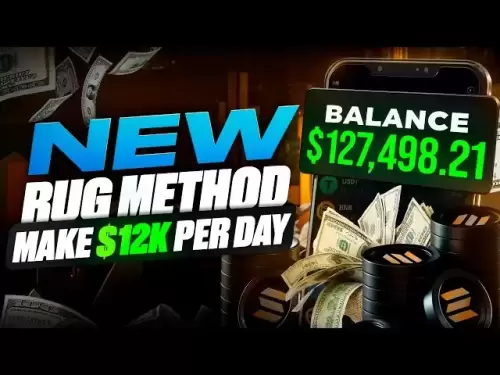-
 Bitcoin
Bitcoin $112400
-1.07% -
 Ethereum
Ethereum $3409
-3.27% -
 XRP
XRP $2.784
-6.60% -
 Tether USDt
Tether USDt $0.9997
-0.03% -
 BNB
BNB $739.3
-2.09% -
 Solana
Solana $158.0
-2.90% -
 USDC
USDC $0.9998
-0.02% -
 TRON
TRON $0.3213
-0.94% -
 Dogecoin
Dogecoin $0.1929
-5.01% -
 Cardano
Cardano $0.6974
-2.82% -
 Hyperliquid
Hyperliquid $36.69
-2.31% -
 Sui
Sui $3.327
-4.80% -
 Stellar
Stellar $0.3672
-5.18% -
 Chainlink
Chainlink $15.65
-3.07% -
 Bitcoin Cash
Bitcoin Cash $525.0
-1.68% -
 Hedera
Hedera $0.2291
-6.00% -
 Avalanche
Avalanche $20.91
-2.96% -
 Ethena USDe
Ethena USDe $1.000
0.00% -
 Toncoin
Toncoin $3.520
-1.12% -
 UNUS SED LEO
UNUS SED LEO $8.968
0.14% -
 Litecoin
Litecoin $105.7
0.26% -
 Shiba Inu
Shiba Inu $0.00001181
-1.79% -
 Polkadot
Polkadot $3.492
-2.08% -
 Uniswap
Uniswap $8.800
-3.10% -
 Dai
Dai $0.9999
-0.01% -
 Monero
Monero $289.9
-3.17% -
 Bitget Token
Bitget Token $4.243
-1.27% -
 Pepe
Pepe $0.00001006
-3.67% -
 Cronos
Cronos $0.1248
-5.68% -
 Aave
Aave $249.7
-2.50%
What does perpetual contract mean for cryptocurrency trading
Perpetual contracts in cryptocurrency trading allow traders to speculate on future asset prices without physical delivery, providing flexibility and leverage without expiry constraints.
Oct 28, 2024 at 06:33 pm
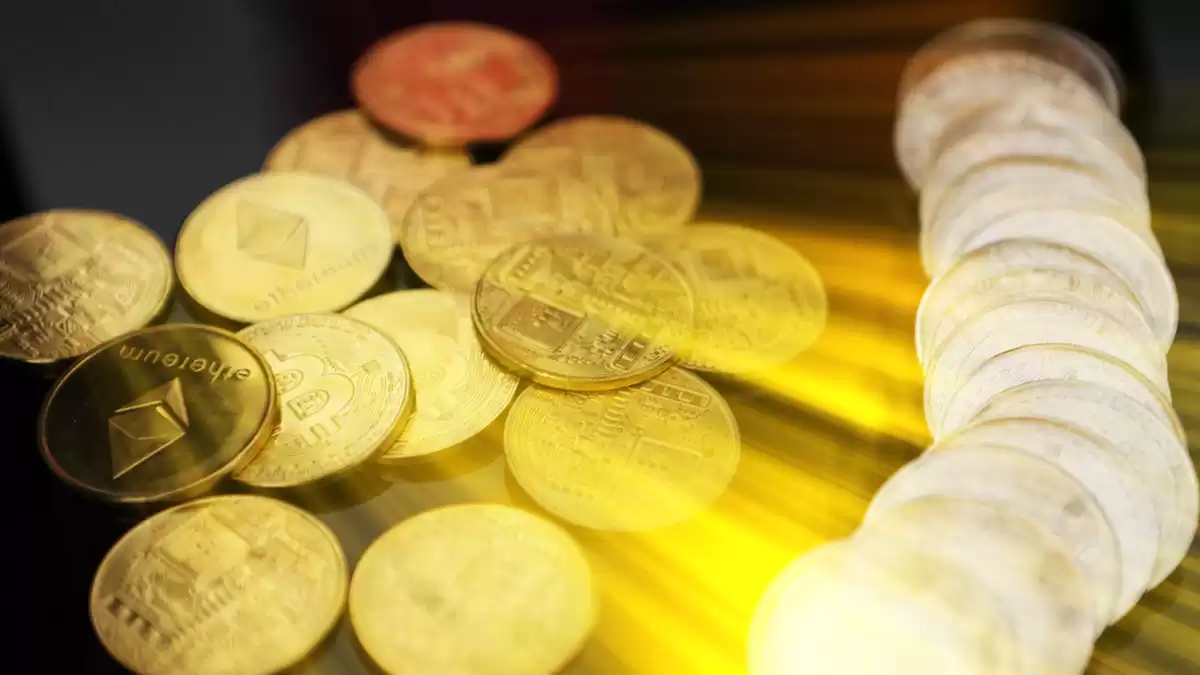
What is Perpetual Contract in Cryptocurrency Trading?
Perpetual contracts are a type of futures contract that allow traders to speculate on the future price of an asset without having to take physical delivery of the underlying asset. In the case of cryptocurrency trading, perpetual contracts allow traders to speculate on the future price of a cryptocurrency, such as Bitcoin or Ethereum, without having to buy or sell the actual cryptocurrency.
Perpetual contracts are similar to traditional futures contracts in that they are traded on a margin basis, meaning that traders only need to put up a small percentage of the total value of the contract to trade. However, perpetual contracts differ from traditional futures contracts in that they do not have a set expiry date. This means that traders can hold positions in perpetual contracts indefinitely, or until they decide to close them out.
One of the main advantages of trading perpetual contracts is that they allow traders to take advantage of price fluctuations in the underlying asset without having to worry about the costs and complexities of taking physical delivery of the asset. This makes perpetual contracts a popular choice for traders who are looking to speculate on the short-term price movements of cryptocurrencies.
How do Perpetual Contracts Work?
Perpetual contracts are traded on centralized exchanges, such as OKX, Binance, and Huobi. When a trader opens a perpetual contract, they are essentially borrowing the underlying asset from the exchange. The trader then agrees to pay or receive a funding rate, which is a small fee that is paid or received on a daily basis, depending on the direction of the market.
The funding rate is designed to keep the perpetual contract price in line with the spot price of the underlying asset. If the perpetual contract price is trading at a premium to the spot price, then the funding rate will be positive, and traders who are short the contract will pay funding to traders who are long the contract. Conversely, if the perpetual contract price is trading at a discount to the spot price, then the funding rate will be negative, and traders who are long the contract will pay funding to traders who are short the contract.
Advantages of Perpetual Contracts
There are a number of advantages to trading perpetual contracts, including:
- Leverage: Perpetual contracts allow traders to trade with leverage, which means that they can control a larger position than they would be able to with a spot trade. This can amplify both profits and losses.
- No expiry: Perpetual contracts do not have a set expiry date, which means that traders can hold positions indefinitely. This can be advantageous for traders who are looking to take advantage of long-term price trends.
- Liquidity: Perpetual contracts are traded on centralized exchanges, which means that they have high liquidity. This makes it easy for traders to enter and exit positions quickly and efficiently.
Risks of Perpetual Contracts
There are also a number of risks associated with trading perpetual contracts, including:
- Margin calls: If the market moves against a trader's position, they may be subject to a margin call, which is a request from the exchange to add more funds to their account. If the trader does not meet the margin call, they may be forced to close out their position at a loss.
- Liquidation: If a trader's position is liquidated, they will lose all of the funds that they have invested in the contract.
- Funding rates: The funding rate can be a significant cost for traders who hold positions overnight. If the funding rate is negative, traders who are long the contract will pay funding to traders who are short the contract. This can eat into profits over time.
Conclusion
Perpetual contracts are a powerful tool that can be used to trade cryptocurrencies with leverage. However, it is important to understand the risks involved before trading perpetual contracts. Traders should only trade with funds that they can afford to lose, and they should carefully manage their risk exposure.
Disclaimer:info@kdj.com
The information provided is not trading advice. kdj.com does not assume any responsibility for any investments made based on the information provided in this article. Cryptocurrencies are highly volatile and it is highly recommended that you invest with caution after thorough research!
If you believe that the content used on this website infringes your copyright, please contact us immediately (info@kdj.com) and we will delete it promptly.
- BlockDAG, SEI, Ethena: Top Crypto Performers Under the Microscope
- 2025-08-03 10:50:16
- Bitcoin Blasts Past $119K: How Institutional Adoption and Macro Shifts Fuel the Fire
- 2025-08-03 10:55:16
- Crypto, Grok, and August: Decoding the Latest Trends and Insights
- 2025-08-03 11:10:16
- Crypto, Phishing, and Your Wallet: A New Yorker's Guide to Staying Safe
- 2025-08-03 10:30:16
- Troller Cat Meme Coin Presale Soars: A New King in the Crypto Jungle?
- 2025-08-03 10:30:16
- Grayscale, Altcoin Trust, and Mid-Cap Mania: What's the Deal?
- 2025-08-03 08:50:16
Related knowledge
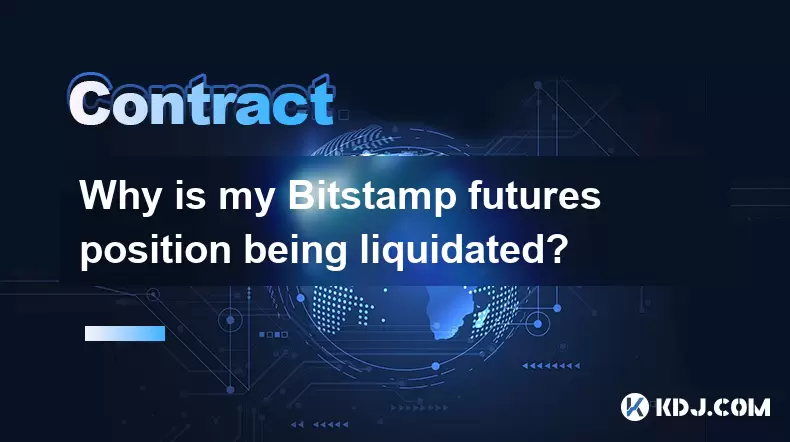
Why is my Bitstamp futures position being liquidated?
Jul 23,2025 at 11:08am
Understanding Futures Liquidation on BitstampFutures trading on Bitstamp involves borrowing funds to open leveraged positions, which amplifies both po...
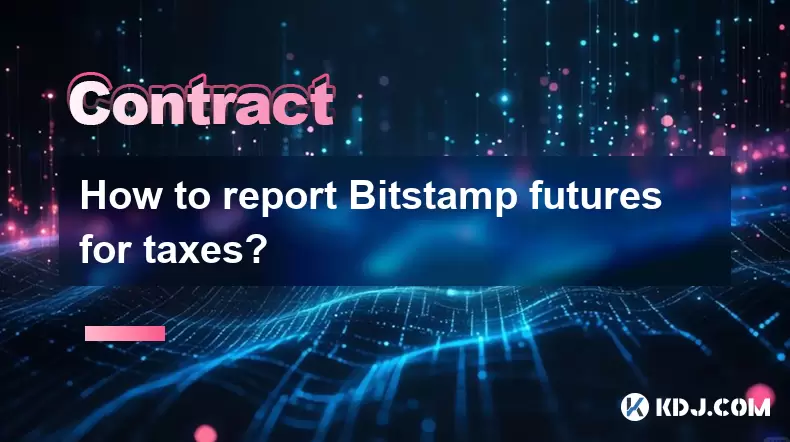
How to report Bitstamp futures for taxes?
Jul 30,2025 at 08:35am
Understanding Bitstamp Futures and Taxable EventsWhen trading Bitstamp futures, it’s essential to recognize that these financial instruments are treat...
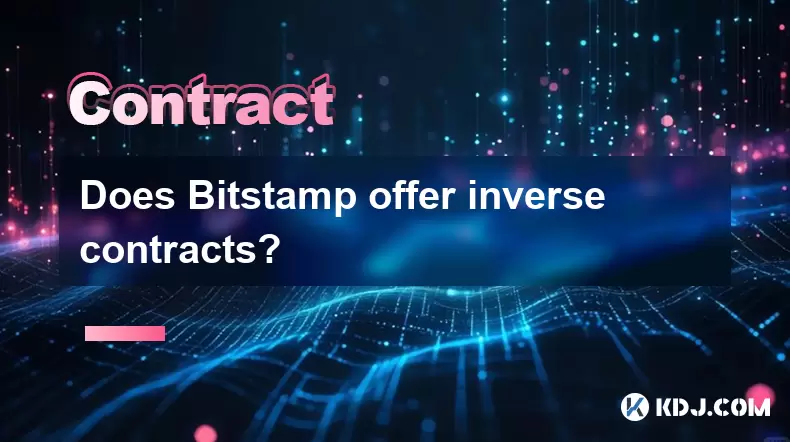
Does Bitstamp offer inverse contracts?
Jul 23,2025 at 01:28pm
Understanding Inverse Contracts in Cryptocurrency TradingIn the realm of cryptocurrency derivatives, inverse contracts are a specific type of futures ...
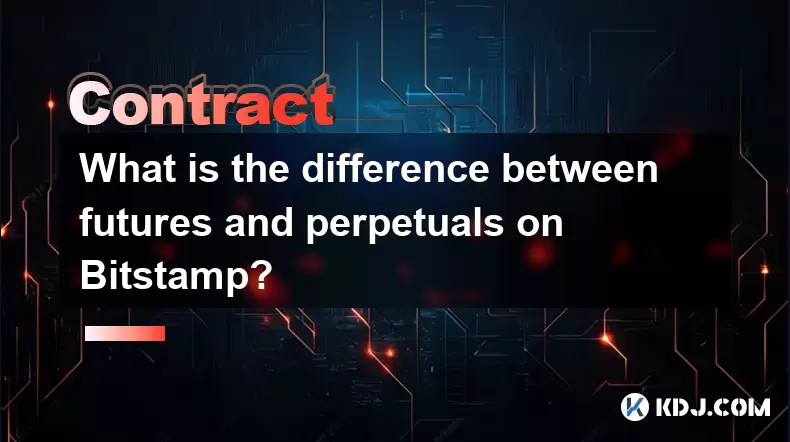
What is the difference between futures and perpetuals on Bitstamp?
Jul 27,2025 at 05:08am
Understanding Futures Contracts on BitstampFutures contracts on Bitstamp are financial derivatives that allow traders to speculate on the future price...
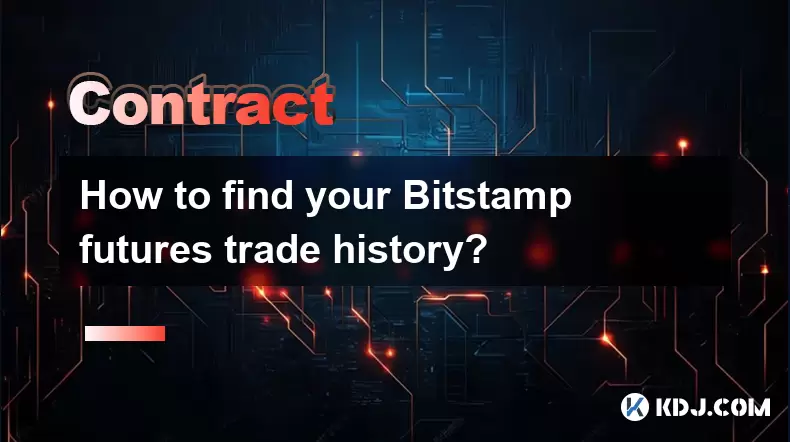
How to find your Bitstamp futures trade history?
Jul 23,2025 at 08:07am
Understanding Bitstamp and Futures Trading AvailabilityAs of the current state of Bitstamp’s service offerings, it is critical to clarify that Bitstam...
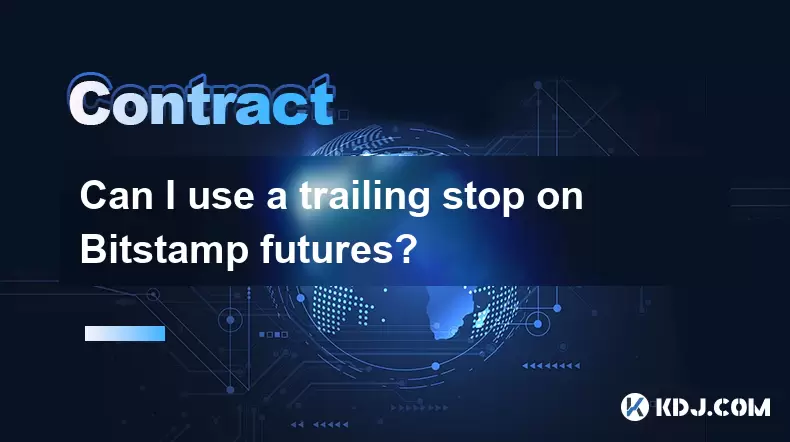
Can I use a trailing stop on Bitstamp futures?
Jul 23,2025 at 01:42pm
Understanding Trailing Stops in Cryptocurrency TradingA trailing stop is a dynamic type of stop-loss order that adjusts automatically as the price of ...

Why is my Bitstamp futures position being liquidated?
Jul 23,2025 at 11:08am
Understanding Futures Liquidation on BitstampFutures trading on Bitstamp involves borrowing funds to open leveraged positions, which amplifies both po...

How to report Bitstamp futures for taxes?
Jul 30,2025 at 08:35am
Understanding Bitstamp Futures and Taxable EventsWhen trading Bitstamp futures, it’s essential to recognize that these financial instruments are treat...

Does Bitstamp offer inverse contracts?
Jul 23,2025 at 01:28pm
Understanding Inverse Contracts in Cryptocurrency TradingIn the realm of cryptocurrency derivatives, inverse contracts are a specific type of futures ...

What is the difference between futures and perpetuals on Bitstamp?
Jul 27,2025 at 05:08am
Understanding Futures Contracts on BitstampFutures contracts on Bitstamp are financial derivatives that allow traders to speculate on the future price...

How to find your Bitstamp futures trade history?
Jul 23,2025 at 08:07am
Understanding Bitstamp and Futures Trading AvailabilityAs of the current state of Bitstamp’s service offerings, it is critical to clarify that Bitstam...

Can I use a trailing stop on Bitstamp futures?
Jul 23,2025 at 01:42pm
Understanding Trailing Stops in Cryptocurrency TradingA trailing stop is a dynamic type of stop-loss order that adjusts automatically as the price of ...
See all articles
























